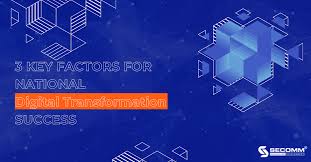Introduction to Bitcoin
Welcome to the exciting world of Bitcoin mining – where digital currency meets innovative technology! Whether you’re a crypto enthusiast or simply curious about how it all works, this blog post will guide you through the ins and outs of Bitcoin mining. Get ready to uncover the secrets behind this decentralized process that powers the global phenomenon known as cryptocurrency.
What is Bitcoin Mining?
Have you ever wondered how new Bitcoins are created? Well, that’s where Bitcoin mining comes into play. But hold on, it’s not about miners digging in the ground looking for virtual coins! In the world of cryptocurrency, mining is the process of validating and adding transactions to the public ledger known as the blockchain.
So, what exactly happens during a Bitcoin mining operation? Miners use powerful computers to solve complex mathematical problems that verify and secure transactions on the network. This process requires substantial computational power and energy consumption.
As a reward for their efforts, miners receive newly minted Bitcoins along with transaction fees. The decentralized nature of Bitcoin ensures that no single entity controls the currency supply or transaction verification process.
In essence, Bitcoin mining serves as the backbone of the entire cryptocurrency ecosystem by ensuring transparency, security, and decentralization within the network.
The Process of Mining Bitcoins
Bitcoin mining is the process of validating transactions on the Bitcoin network by solving complex mathematical problems using computer hardware. Miners compete to solve these algorithms and add new blocks to the blockchain, which serves as a public ledger for all transactions.
Once a miner successfully solves the algorithm, they are rewarded with newly minted bitcoins and transaction fees. This incentivizes miners to continue securing the network while also introducing new coins into circulation.
Mining requires specialized equipment such as ASIC (Application-Specific Integrated Circuit) miners or GPUs (Graphics Processing Units) to efficiently perform the computations needed to mine bitcoins. The more computational power a miner has, the higher their chances of successfully mining bitcoins.
As more miners join the network, the difficulty of mining increases, requiring even more computational power to remain competitive. This dynamic system helps regulate the creation of new bitcoins and ensures that blocks are added at regular intervals.
Hardware and Software Requirements for Mining
When it comes to Bitcoin mining, having the right hardware and software is crucial for success. The main component you’ll need is a powerful computer system with a high-speed processor and plenty of memory. Additionally, you’ll require specialized mining software that connects your hardware to the Bitcoin network.
For hardware, miners often use ASIC (Application-Specific Integrated Circuit) machines designed specifically for mining cryptocurrencies. These devices are much more efficient at solving complex mathematical equations compared to traditional CPUs or GPUs.
In terms of software, popular options include CGMiner and BFGMiner, which allow miners to control their mining operations efficiently. These programs also provide real-time statistics on hash rates, temperature monitoring, and other essential data for optimizing performance.
It’s important to keep in mind that as the Bitcoin network becomes more competitive, the hardware and software requirements for mining will continue to evolve. Stay informed about the latest advancements in technology to ensure your mining setup remains profitable.
Is Bitcoin Mining Profitable?
Bitcoin mining can be a profitable venture for those who have the right setup and resources. However, it’s essential to consider factors such as electricity costs, hardware expenses, and the current price of Bitcoin. With the increasing complexity of mining algorithms, it’s crucial to stay updated on the latest trends in technology.
Some miners choose to join mining pools to increase their chances of earning rewards more consistently. By combining computational power with other miners, they can share profits based on their contributions. It’s important to weigh the pros and cons of solo mining versus joining a pool before diving into the world of Bitcoin mining.
As with any investment opportunity, there are risks involved in Bitcoin mining. Fluctuations in Bitcoin prices can significantly impact profitability levels. Additionally, regulatory changes or technological advancements could also influence the potential earnings from mining activities.
While Bitcoin mining has the potential for profitability, it requires careful planning and consideration before jumping in headfirst into this competitive market.
Environmental Impact of Mining
Bitcoin mining has been associated with concerns about its environmental impact. The process of mining requires significant amounts of electricity to power the specialized hardware and cooling systems. As a result, the carbon footprint of Bitcoin mining is substantial.
Many critics argue that this energy consumption contributes to climate change and exacerbates existing environmental challenges. The reliance on fossil fuels in some regions further intensifies these concerns.
Efforts are being made to address the environmental impact of mining through initiatives promoting renewable energy sources. Some miners are exploring alternative methods to reduce their carbon footprint and operate more sustainably.
It’s important for the cryptocurrency community to continue exploring innovative solutions that prioritize sustainability while maintaining the integrity and security of the network.
Alternatives to Traditional Bitcoin Mining
As the environmental impact of traditional Bitcoin mining becomes more apparent, alternative methods are being explored to reduce energy consumption and carbon footprint. One such alternative is renewable energy mining, where miners use solar, wind, or hydroelectric power to mine Bitcoins sustainably. This not only reduces the environmental impact but also helps in promoting green energy initiatives.
Another emerging trend is mobile mining apps that allow users to mine cryptocurrencies using their smartphones or other devices. While these apps may not be as profitable as traditional mining rigs, they offer a more accessible entry point for individuals interested in cryptocurrency mining.
Cloud mining services have also gained popularity as an alternative to traditional hardware-based mining. With cloud mining, users can rent computing power from remote data centers to mine cryptocurrencies without having to invest in expensive equipment.
Exploring and implementing these alternatives can help make Bitcoin mining more sustainable and inclusive for a wider range of individuals interested in participating in the cryptocurrency market.
Conclusion
Bitcoin mining is a complex but essential process for the functioning of the cryptocurrency network. As technology advances and more efficient methods are developed, it will be interesting to see how Bitcoin mining evolves in the future. Whether you are interested in mining for profit or supporting the network, understanding how Bitcoin mining works is crucial for anyone involved in the world of cryptocurrencies. Happy mining!
 Anupama Watch Anupama Desi Serial Today Latest Video Episodes Online at Anupamastarplus.cam
Anupama Watch Anupama Desi Serial Today Latest Video Episodes Online at Anupamastarplus.cam






